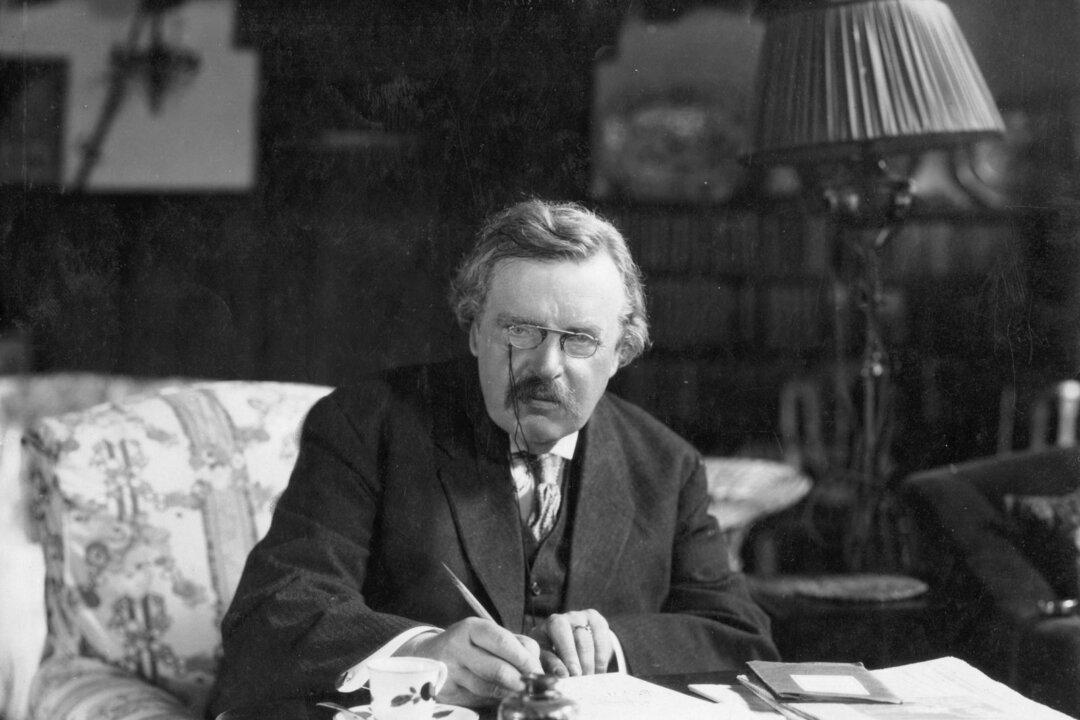Though the England of his time was famous for its eccentrics, one man in particular captured the attention of satirists and the hearts and smiles of the men and women of that island nation.
Writer G.K. Chesterton (1874–1936) was a giant of a man for his time, standing 6 feet 4 inches tall and weighing around 300 pounds. He was known for wearing a cloak and a broad-brimmed hat, giving him the appearance of a man casting about for adventures. He was disheveled, absent-minded, and frequently arrived late or not at all at his speaking engagements. Once when he forgot where he was supposed to deliver a lecture, he famously sent his wife, Frances, a telegram: “Am at Market Harborough. Where ought I to be?” Realizing he had already missed his lecture, his wife telegraphed back: “Home.”






